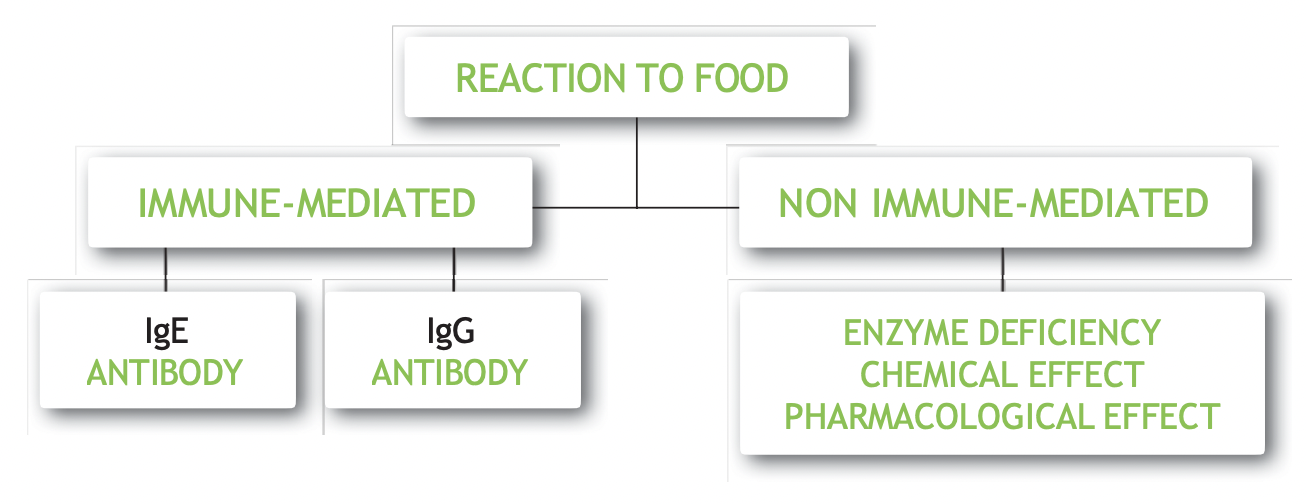
UnderstandingFood Intolerance
TERMINOLOGY
The terms ‘food allergy’, ‘food intolerance’ and ‘food sensitivity/hypersensitivity’ are often used interchangeably and are often confused, but essentially they all mean an abnormal reaction to certain foods which can manifest themselves in a number of different ways. They may result from mechanisms that involve activation of the immune system, and the subsequent production of antibodies, or reactions that are not immune-mediated.
